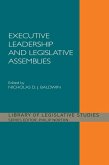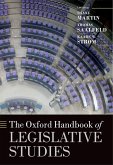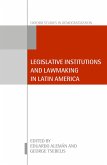By whatever name they are known (Parliaments, Legislatures, or Assemblies, to name but three) legislative assemblies in democratic societies face the twin challenges of institutional capacity and accountability to their citizens. In addressing these challenges, assemblies vary in the extent to which they serve the respective interests of three critical sets of actors: their members, party leaders, and voters. In this book, Shane Martin and Kaare W. Str?m identify three ideal types of democratic assemblies - the members' assembly, the leaders' assembly, and the voters' assembly - and analyze national legislative assemblies in the world's 68 most populous democracies, from Finland to Papua New Guinea, in light of these models. Based on extensive new cross-national data, they trace the implications of the three assembly types for the design, internal organization, resources, and powers of democratic national assemblies, develop indices of each assembly type, and score each of the 68 legislative assemblies on these indices. The analysis of legislative re-election rates in these countries reveals that the fate of incumbents depends on member resources as well as on leadership control, but is ultimately constrained by voter confidence. In conclusion, the authors discuss the past and future trajectories of legislative assemblies, including their susceptibility to democratic backsliding.
Dieser Download kann aus rechtlichen Gründen nur mit Rechnungsadresse in A, B, BG, CY, CZ, D, DK, EW, E, FIN, F, GR, HR, H, IRL, I, LT, L, LR, M, NL, PL, P, R, S, SLO, SK ausgeliefert werden.









